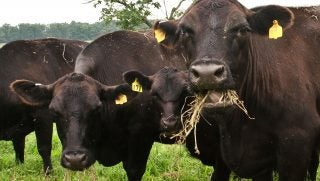A total of $270,000 was given to 54 veterinary students from around the world as scholarships through the Merck Animal Health Veterinary Student Scholarship Program. The global biopharmaceutical company Merck has partnered with the American Veterinary Medical Foundation since 2013 to provide scholarship support to hundreds of veterinary students. The selected second- and third-year students pursuing careers in companion animal or large animal medicine will each receive a $5,000 scholarship to support their educational endeavors.
The AVMF, the charitable arm of the American Veterinary Medical Association, has supported veterinary students for more than five decades.
Award recipients from U.S., Canadian, and Caribbean veterinary schools accredited through the AVMA, along with select international schools, were chosen based on academic excellence, financial need, leadership, and area of interest within the profession. The scholarship recipients are:
- Mohammad Shelim Ahmed, Bangladesh Agricultural University
- Tahmina Akter, Chattogram Veterinary and Animal Sciences University
- Alexander Amalfitano, Ross University
- Alexandra Attenasio, Cornell University
- Chloe Baker, The Ohio State University
- Tonmoy Chakroborty, Chattogram Veterinary and Animal Sciences University
- Kayla Chase, University of Minnesota
- Jacob Crotts, University of Georgia
- Siria Cruz, Oregon State University
- Paola Cruz Ramos, North Carolina State University
- Morgan Falk, University of Wisconsin
- Emerald Ford, Mississippi State University
- Emma Foxcroft, University of Calgary
- Prathima Garudadri, University of California – Davis
- Michelle Greenfield, Cornell University
- Gregor Greer, Virginia-Maryland College of Veterinary Medicine
- Zubaida Gulshanara, Bangladesh Agricultural University
- Cecelia Harmon, Virginia-Maryland College of Veterinary Medicine
- Mehedi Hasan, Bangladesh Agricultural University
- Stephanie Heniff, University of Illinois
- Kazi Towhidul Islam, Chattogram Veterinary and Animal Sciences University
- Shiful Islam, Chattogram Veterinary and Animal Sciences University
- Osman Khan, Chattogram Veterinary and Animal Sciences University
- Aimee Labrie, Michigan State University
- Jarif Mahmud, Chattogram Veterinary and Animal Sciences University
- Shimu Moni, Chattogram Veterinary and Animal Sciences University
- Jude Morton, University of Saskatchewan
- Iulia Osipova, Kansas State University
- Alexis Payette, University of Wisconsin
- Arasta Pervin, Bangladesh Agricultural University
- Allyson Quigley, Washington State University
- Ana Ramirez, Western University – California
- Lela Remington, Midwestern University
- Siobhan Rickert, University of California – Davis
- Ganga Sagar Sah, Bangladesh Agricultural University
- Rachel Sanchez, University of Georgia
- Jay Schaub, University of Florida
- Libby Schneider, Oklahoma State University
- Emily Schuurmans, Michigan State University
- Danielle Scott, Colorado State University
- Reshmi Sensharma, University of Pennsylvania
- Younus Shajid, Chattogram Veterinary and Animal Sciences University
- Shalini Shashidhara, Michigan State University
- John Smith, University of Georgia
- Kelsey Springer, University of Minnesota
- Jose Suarez Rodriguez, Louisiana State University
- Ryan Swanson, Kansas State University
- Claire Takeshita, University of California – Davis
- Spencer Traynham, St. George’s University
- Alexis Urrea, University of Wisconsin
- Jillian Western, Mississippi State University
- Katelyn Williams, University of Georgia
- Jocosa Yasenchack, The Ohio State University
- Sharuk Zaman, Bangladesh Agricultural University
“Veterinarians play a critical role in both caring for our companion animals and ensuring a safe and sustainable food supply,” said Scott Bormann, Senior Vice President at Merck Animal Health.


